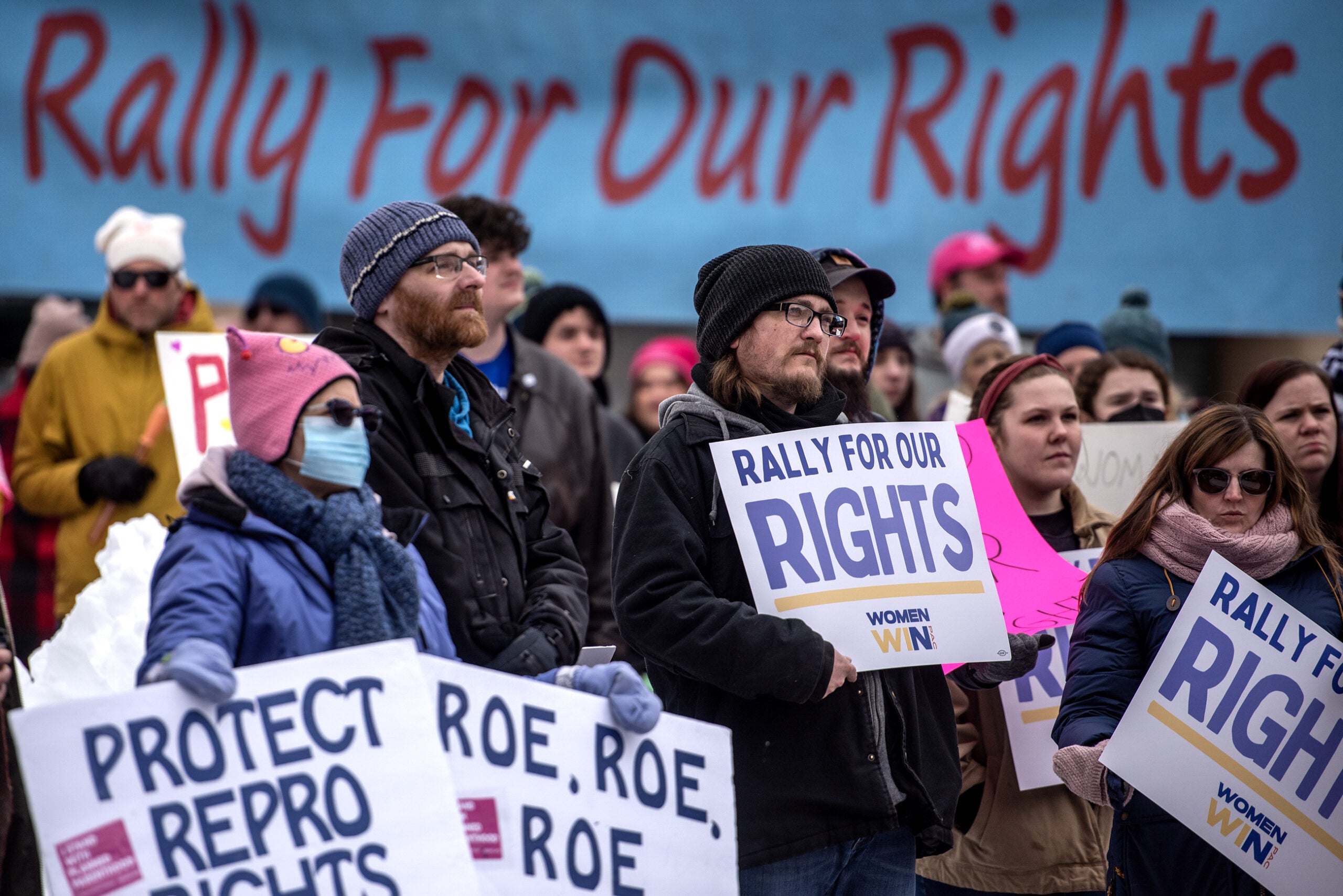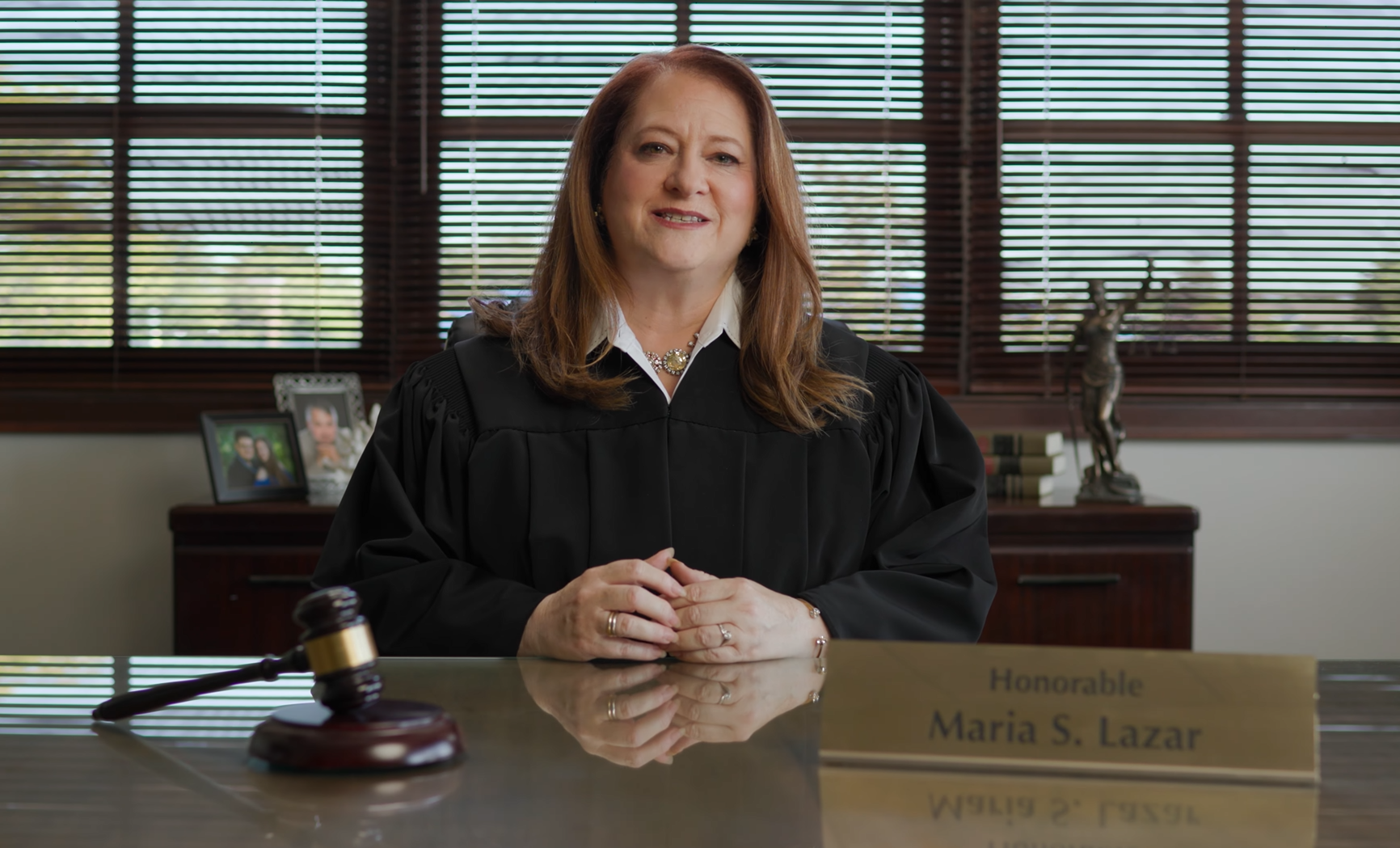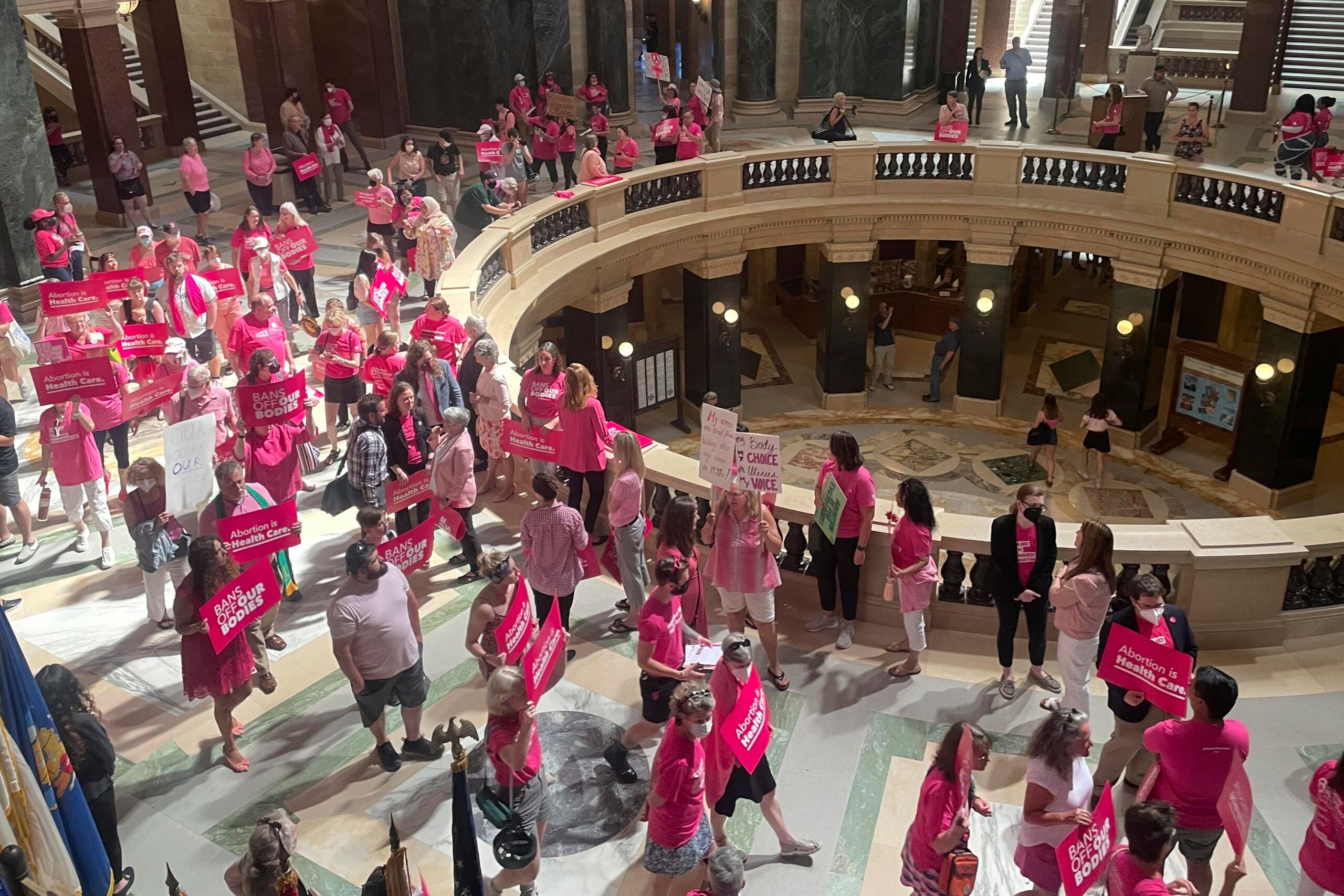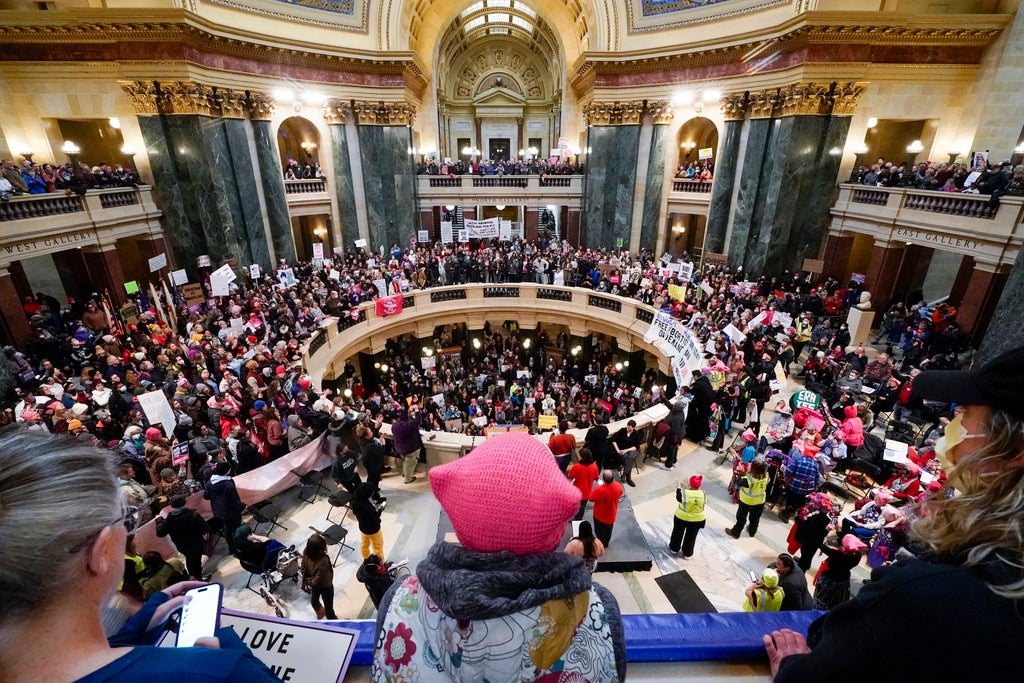On a freezing day in mid-March, dozens of activists stood among snow piles in downtown Appleton, their focus on rights they said are at stake in Wisconsin’s pivotal State Supreme Court election.
They talked about the state’s legislative maps, voting rights and safety for the LGBTQ community. But at the core of almost all of their remarks, one issue stood out: the future of abortion rights in Wisconsin.
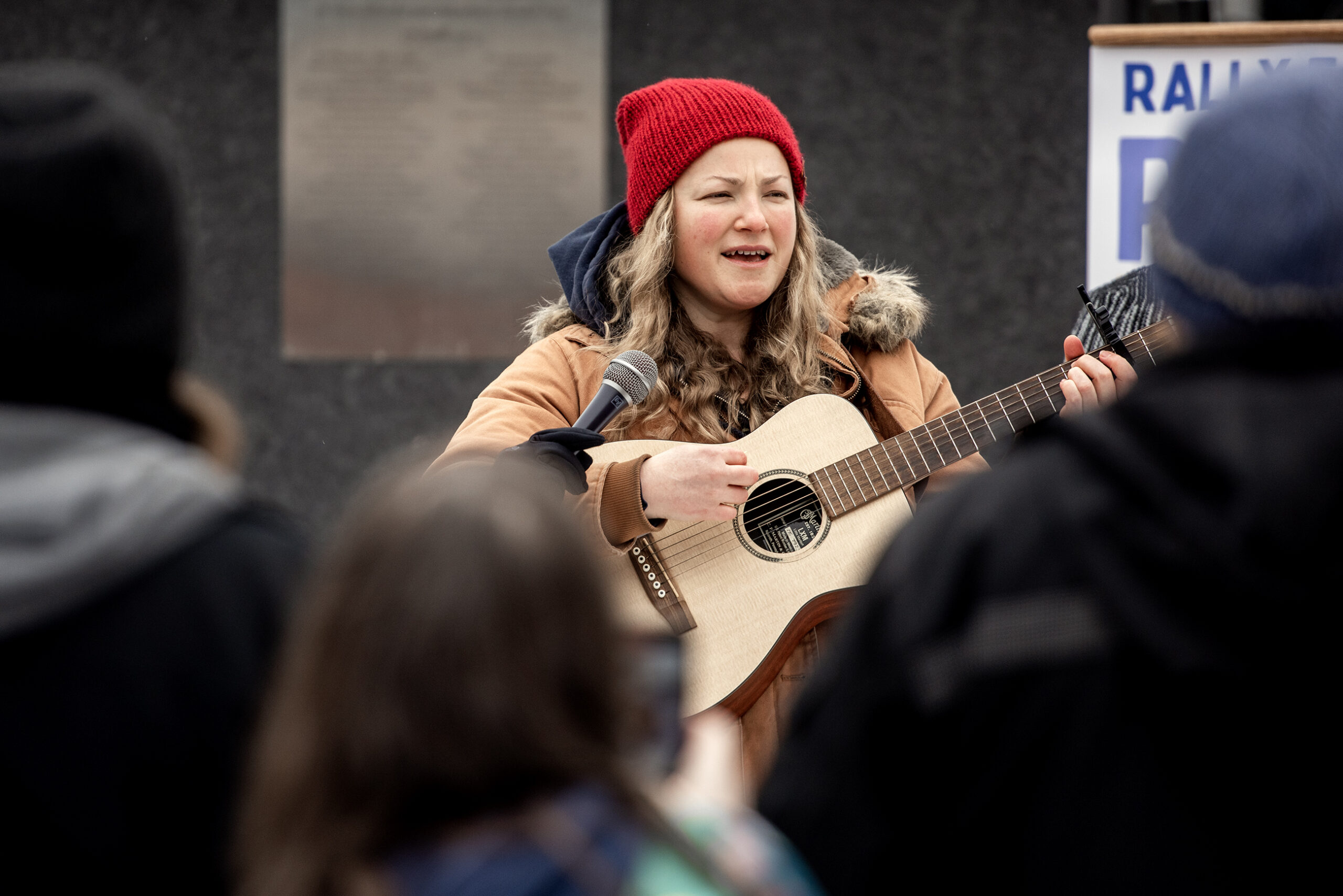
News with a little more humanity
WPR’s “Wisconsin Today” newsletter keeps you connected to the state you love without feeling overwhelmed. No paywall. No agenda. No corporate filter.
“As a 26-year-old woman living in Wisconsin, I want to have autonomy over my body,” said Emma Kiel of Appleton. “I’m young, and I’m still going to be figuring out what I want to do with my life and whether or not I want to bring children into that. And it’s really terrifying that somebody else can make that choice for me.”
Abortion has long been an issue in Wisconsin elections, but it’s arguably on the ballot in this year’s state Supreme Court race.
That’s largely because the procedure has been outlawed here since last summer, when the U.S. Supreme Court overturned Roe v. Wade, reinstating Wisconsin’s pre-Civil War abortion ban in the process. A lawsuit that would repeal that ban and restore abortion rights is pending in state court and almost certain to end up before the Wisconsin Supreme Court, whose ideological balance is up for grabs in this election.
In an ostensibly nonpartisan race, former Justice Dan Kelly is favored by conservatives, and has done work for an anti-abortion group. Milwaukee County Circuit Court Judge Janet Protasiewicz, who’s backed by liberals, has been outspoken in her support for abortion rights. If Protasiewicz wins, liberals would hold a majority on the court for the first time since 2008.
Abortion rights supporters see that as an opportunity to overturn Wisconsin’s ban on abortion, and that awareness is transforming what might otherwise be a low-key election. It’s shattering records for campaign spending, attracting national attention, and motivating the people at this Appleton gathering.
“This is new for me,” said Whitney Bouchard, of Kaukauna, as she waved a sign at passing drivers, some of whom honked in support. “I think I just realized how much of an impact these things have. And I don’t think everybody does. You hear about the presidential elections … and those are important, but I don’t think people realize how important all the other elections are.”
US Supreme Court set the stage for Wisconsin’s high-stakes court race
Wisconsin is not the only state where abortion access changed after the repeal of Roe v. Wade, but the transformation here was especially pronounced.
Before the U.S. Supreme Court’s Dobbs v. Jackson Women’s Health ruling that overturned Roe, Wisconsin prohibited abortion after 20 weeks of pregnancy. After the ruling, an outright ban on abortion, first written in 1849 and amended years later, became the law of the land.
After that, Wisconsin Attorney General Josh Kaul filed a lawsuit arguing that more recent Wisconsin statutes, many from 1985, conflict with the original ban. The suit also argues that the ban is unenforceable because it went unused for so long.
That challenge is still pending in Dane County Circuit Court, but it’s expected to go before the Supreme Court, where the ideological makeup of the court could be the deciding factor in how it’s resolved.
This sets the stage for other state-level races, said Mary Ziegler, a legal historian and expert on the U.S. abortion debate at the University of California, Davis School of Law.
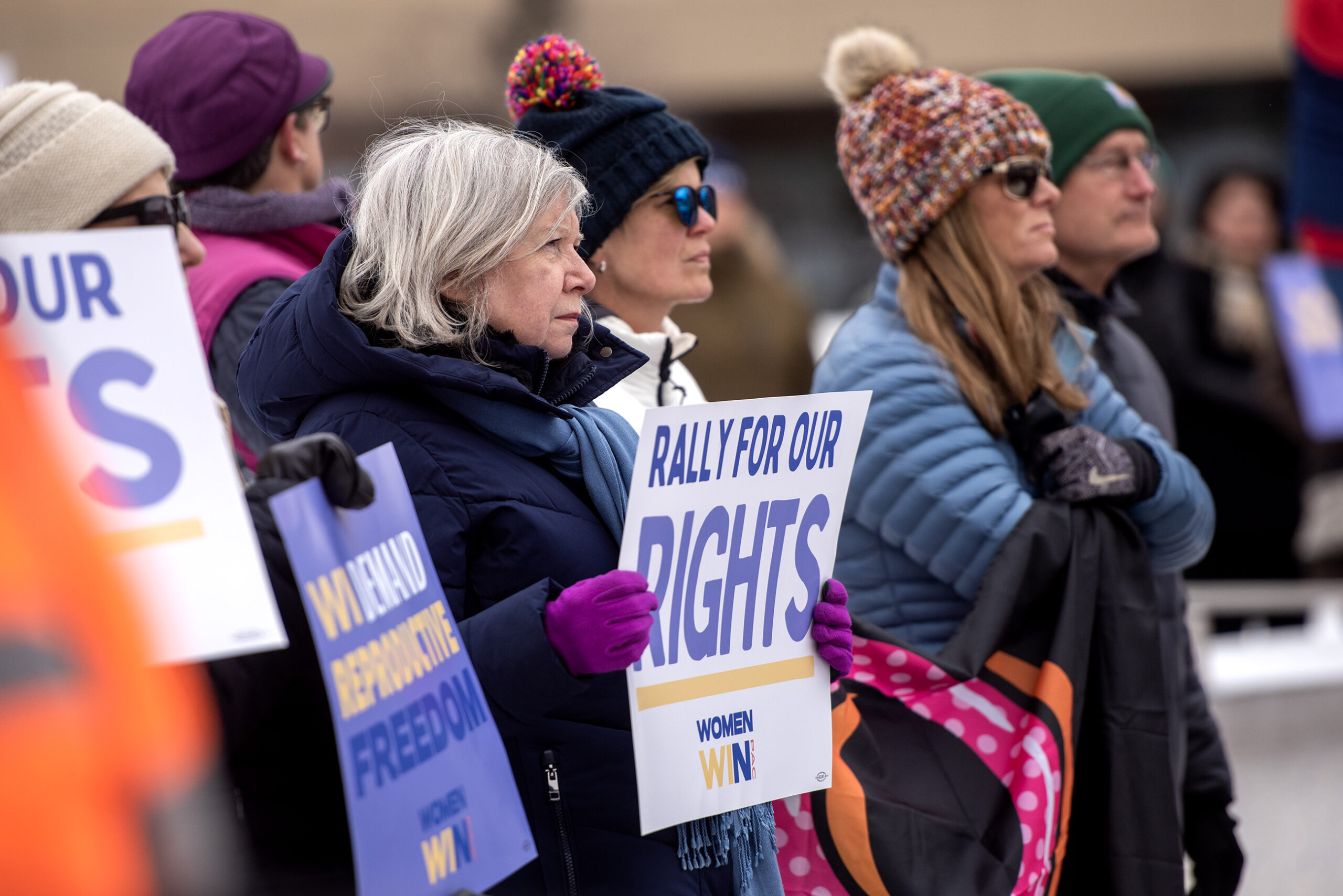
“There’s so much more interest in state supreme courts across the country than there’s ever been,” she said. “I think Wisconsin is going to be kind of like a laboratory for both sides as they try to figure out how to influence State Supreme Court elections.”
These campaigns reflect a political change since the fall of Roe, Ziegler said. Abortion was not a leading issue for most voters before last summer, but people across the political spectrum have been motivated by the loss of access to a procedure that had been protected by the U.S. Supreme Court for decades.
While Democrats are most obviously motivated by the issue, Ziegler said some Republicans also want to see more moderate abortion laws than their states offer in a post-Roe world. That includes Wisconsin, where the ban that went into effect does not include exceptions for pregnancies that occur because of rape or incest.
“You also have seen a shift in intensity of preference on abortion among a lot of Democrats — and, I think, some questions among some Republicans, especially around laws like Wisconsin’s, that don’t have exceptions,” she said.
A group of GOP lawmakers, including Assembly Speaker Robin Vos, R-Rochester, proposed a bill that would add those exceptions to state law. It met bipartisan opposition, as Democrats complained it didn’t go far enough to restore abortion rights, and anti-abortion groups promised to fight the bill and preserve the outright ban.
Protasiewicz, Kelly take dramatically different approaches
When it comes to the candidates themselves, Protasiewicz and Kelly have taken dramatically different approaches to the abortion issue during this campaign.
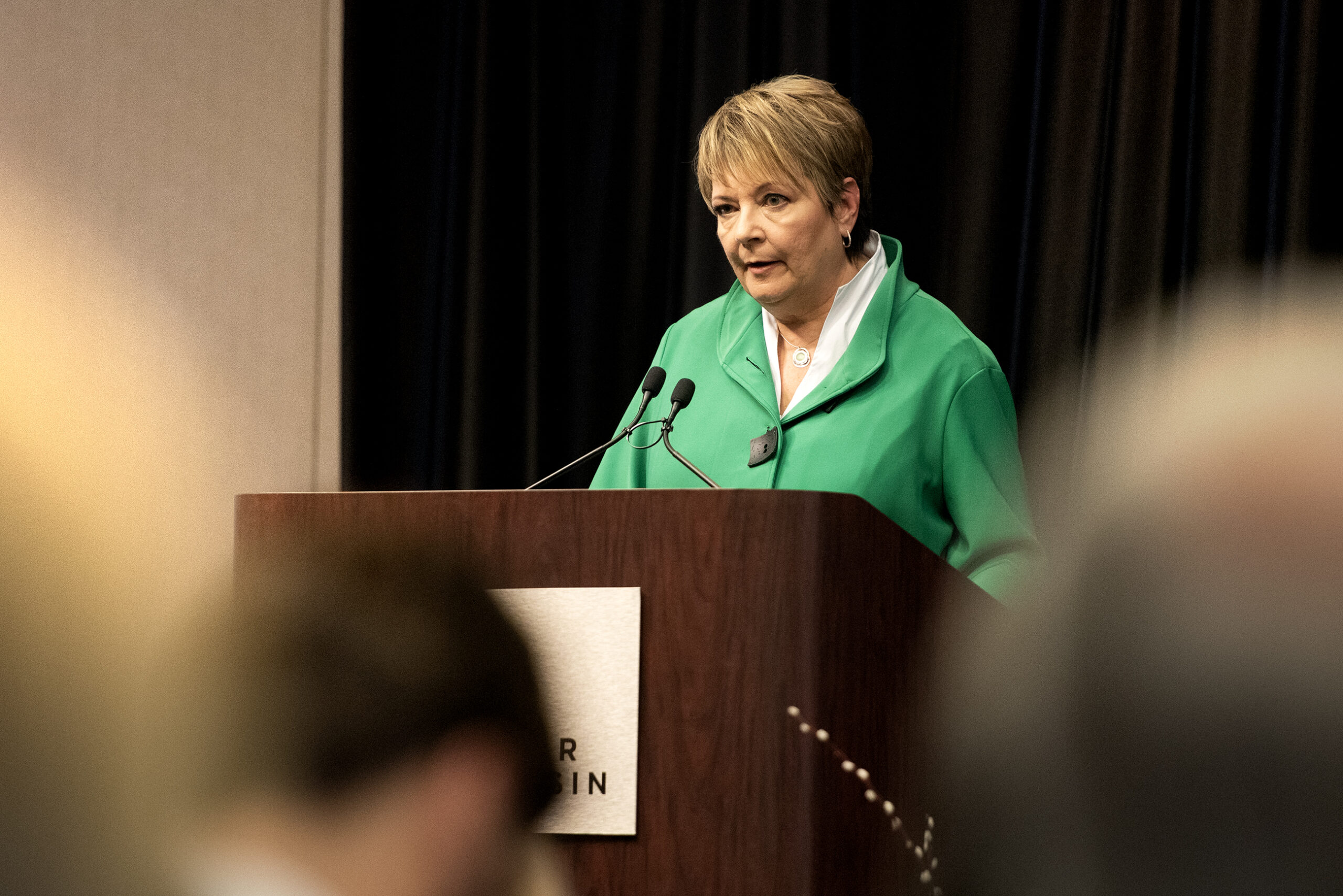
Protasiewicz has repeatedly said that she supports access to abortion. But she’s also said that that is a statement of her values, and not an indication of how she would decide any given case.
“I can’t make any specific comments as to what I would do when elected as a Supreme Court justice,” she said on WPR’s “Central Time” program last month. “What I have told people regarding the 1849 (ban): I have been very, very clear that my values are that women have the right to choose.”
Protasiewicz added that her decisions will be based in Constitutional law and not “right-wing partisan beliefs.”
And at a debate between the two candidates on Tuesday — the only debate of the campaign — she asserted that Kelly will uphold the existing ban.
“I have been very clear about my values to the electorate, because I think the electorate deserves to know what a person’s values are, rather than hiding them,” she said. “If my opponent is elected, I can tell you with 100 percent certainty, that 1849 abortion ban will stay on the books.”
Kelly has said that Protasiewicz’s statements amount to a pledge to rule a certain way, and he denied that he has made up his mind about the abortion ban.
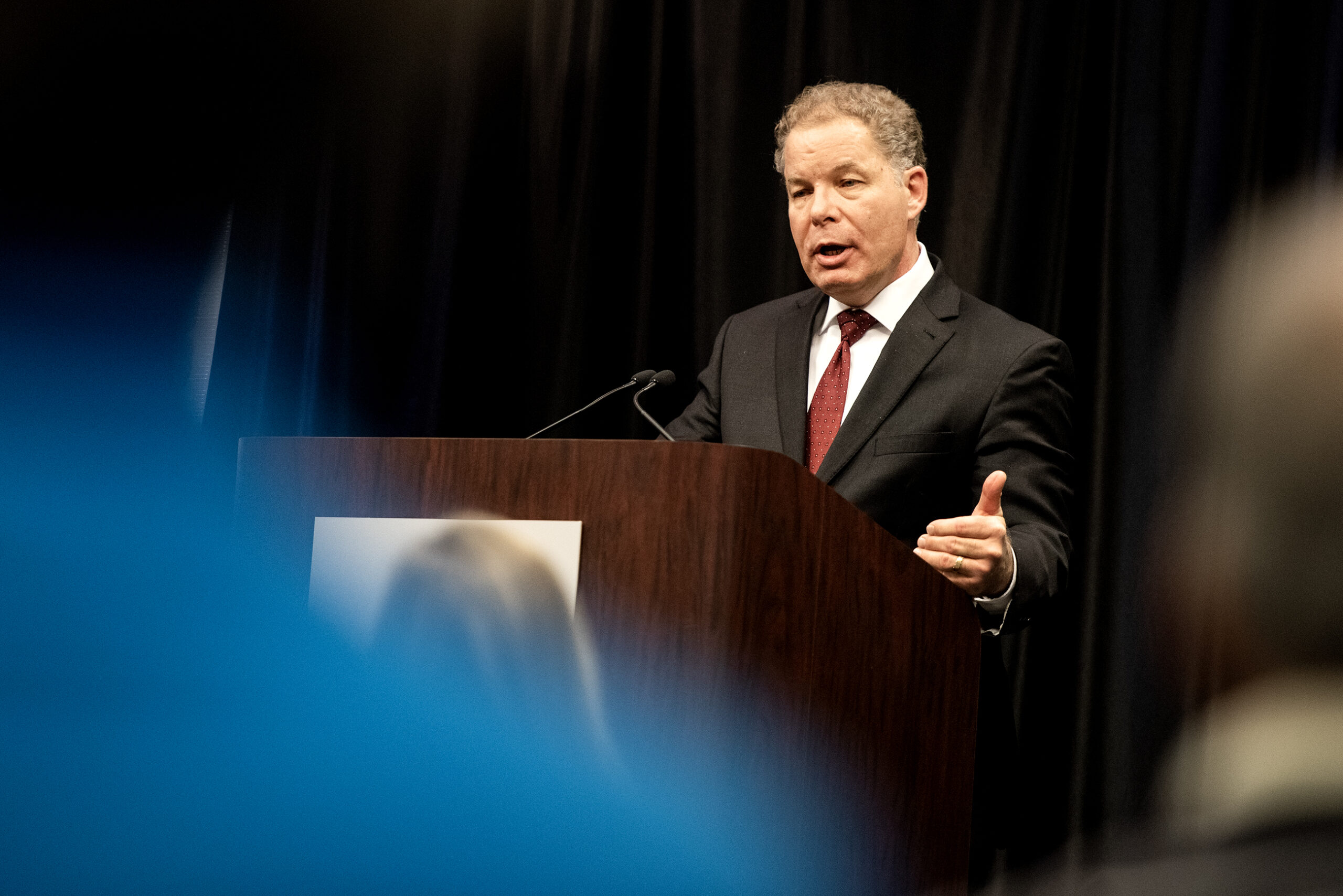
“This seems to be a pattern for you, Janet. Just telling lies. So you don’t know what I’m thinking about that abortion ban. You have no idea,” he said at the debate
He also said that his endorsements from anti-abortion groups were not contingent on promises to decide to uphold the ban.
“I had no conversations with those organizations about how I would rule on any issue, including the abortion issue,” he said. “I understand what the court is supposed to do, and that’s resolving legal questions. So those endorsements had nothing to do with the pledges that are required of those who run for political office.”
With all eyes on Wisconsin, campaign spending shatters records
The stakes are obvious by the size of spending in the race, which has already shattered national records for a state high court race. Weeks ago, the data firm AdImpact estimated that more than $22 million has been spent on ads in Wisconsin’s Supreme Court race. The previous record was $15 million, set in Illinois in 2004, according to the Brennan Center for Justice.
The largest single spender has been the Protasiewicz campaign, but outside groups that support Republicans have recently become more involved, spending millions on Kelly’s behalf.
That record spending reflects the increasing importance of state court races to issues like abortion access, said Douglas Keith, an attorney with the Brennan Center.
“If you are a group who cared about abortion access, before Dobbs, nationally, as an issue that you worked on — either for or against — there’s a recognition that some of the most important deciders when it comes to an issue like that are now going to be state high courts,” he said.
National groups have jumped into Wisconsin’s race, throwing their organizing weight behind respective candidates. Protasiewicz has been endorsed by Planned Parenthood and Emily’s List, a national group that backs female candidates who support abortion rights. According to Emily’s List, Protasiewicz is the first state judicial candidate ever endorsed by the organization.
Kelly has been endorsed by three Wisconsin anti-abortion groups: Pro-Life Wisconsin, Wisconsin Family Action and Wisconsin Right to Life, a group for which he provided legal counsel in the past. The national anti-abortion group, Susan B. Anthony Pro-Life, has also supported his campaign.
Organizers are treating Wisconsin like a test case. The national Women’s March held a rally at the Wisconsin State Capitol in January to draw attention to the race.
“The Supreme Court election is really an opportunity to see what is possible,” Women’s March managing director Tamika Middleton said in January. “If it’s possible to influence and impact a Supreme Court in a state and overturn a ban in that state, that gives us a model, an opportunity to think about what we can do in other states.”
A new urgency to an old debate
Political activists say they’re seeing an unprecedented level of excitement around this race. Steven Webb, the director of Planned Parenthood of Wisconsin, said the organization is seeing “record” numbers of young people coming out to organize for the election.
“They really understand what is at stake, and they want their voice heard this election,” he said.
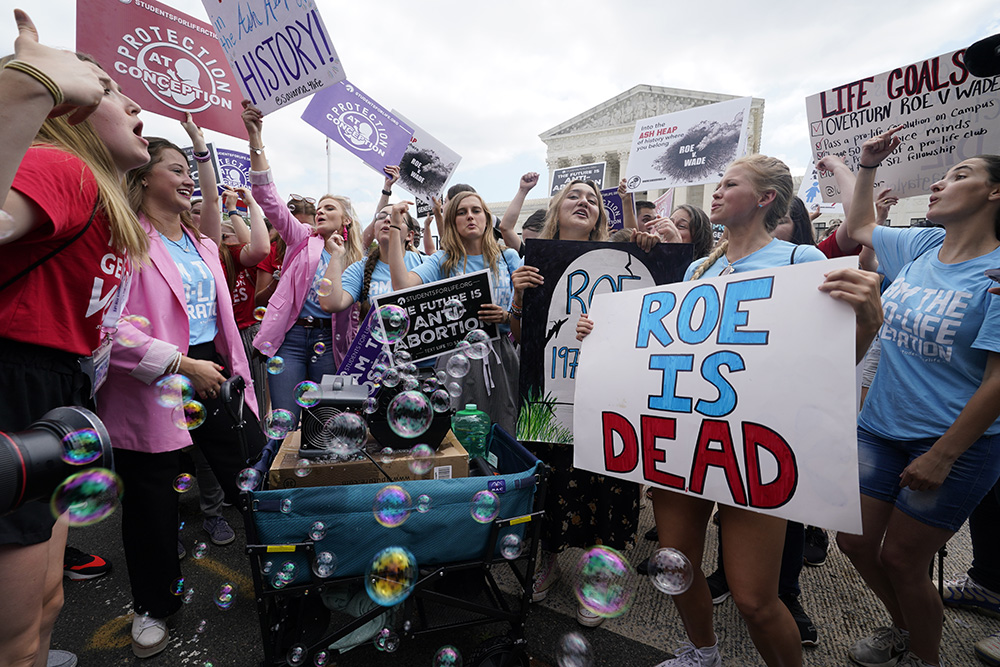
Anti-abortion activists are also looking to preserve the legal victory they achieved when Roe v. Wade was overturned last summer. Gracie Skogman, the legislative director of Wisconsin Right to Life, said she’s “never seen” a response like this from anti-abortion activists.
“This is the most impactful election for the pro-life base here in Wisconsin, now that there is a tangible law that’s on the line,” she said.
Her organization, and other anti-abortion groups, are texting and calling voters and sending out mailers. Skogman said these activists are motivated not just by politics but by the personal experiences of working with women who carried pregnancies to term that they might otherwise have terminated.
“This is personal to them,” she said of the volunteers working with her group to get out the vote for Kelly. “It’s hard to imagine something more motivational than that.”
Among abortion rights activists, there’s a different kind of urgency. Ben Wikler, chair of the Democratic Party of Wisconsin, said people are energized by the loss of a right they may have taken for granted. The state party has drawn national attention to Wisconsin’s Supreme Court race and transferred millions to the Protasiewicz campaign.
Wikler said Democrats are also motivated by a sense of hope that they can push affirmatively for changes to the state’s pre-Civil War abortion law. Last year, Wikler said, Democratic Gov. Tony Evers campaigned on preserving the power of his veto to block legislation — of being a “goalie.” This campaign, Wikler said, is different.
“It’s not just that we can prevent something terrible from happening,” said Wikler. “In this moment, we can actually move to the other side of the field.”
Wisconsin Public Radio, © Copyright 2025, Board of Regents of the University of Wisconsin System and Wisconsin Educational Communications Board.

